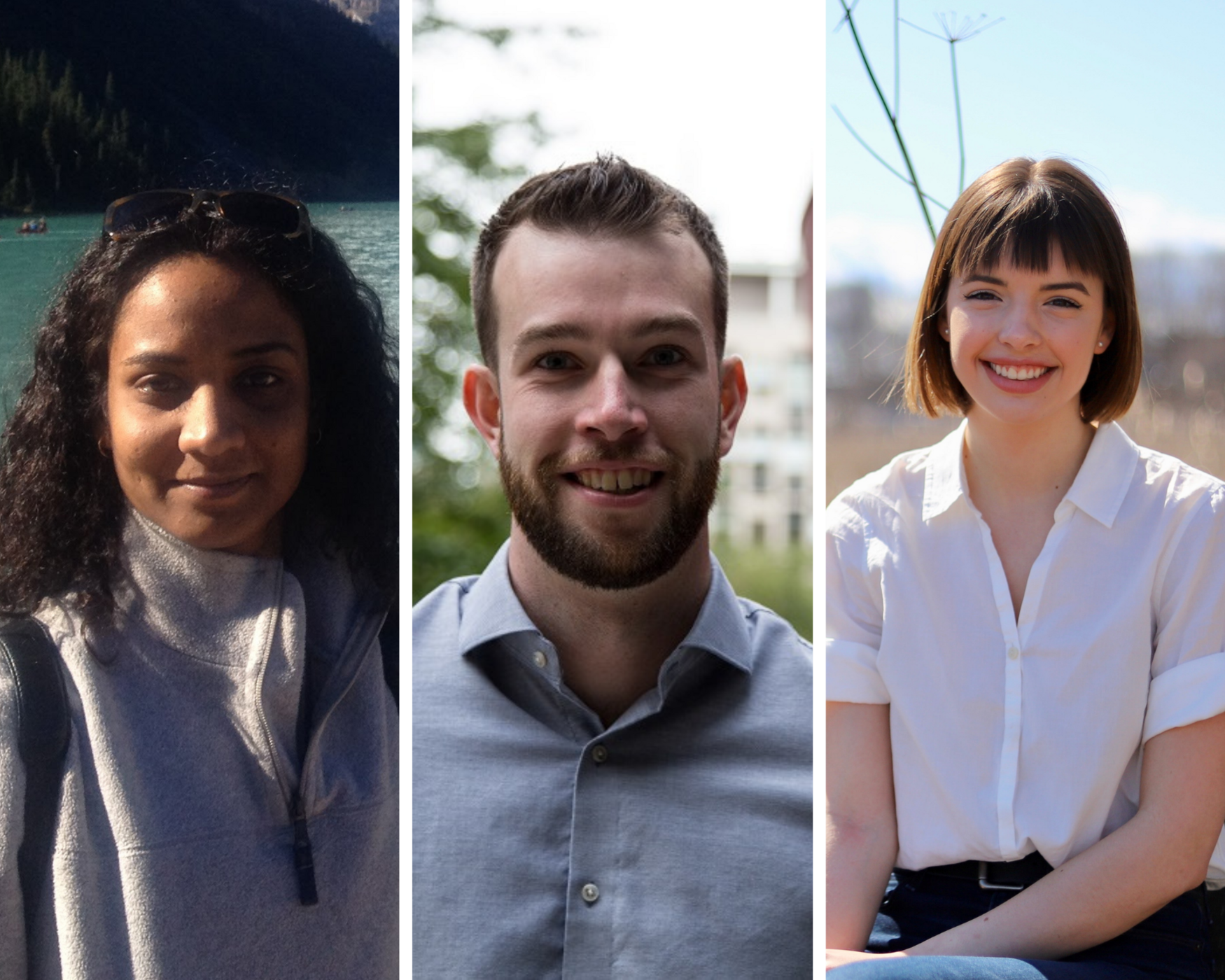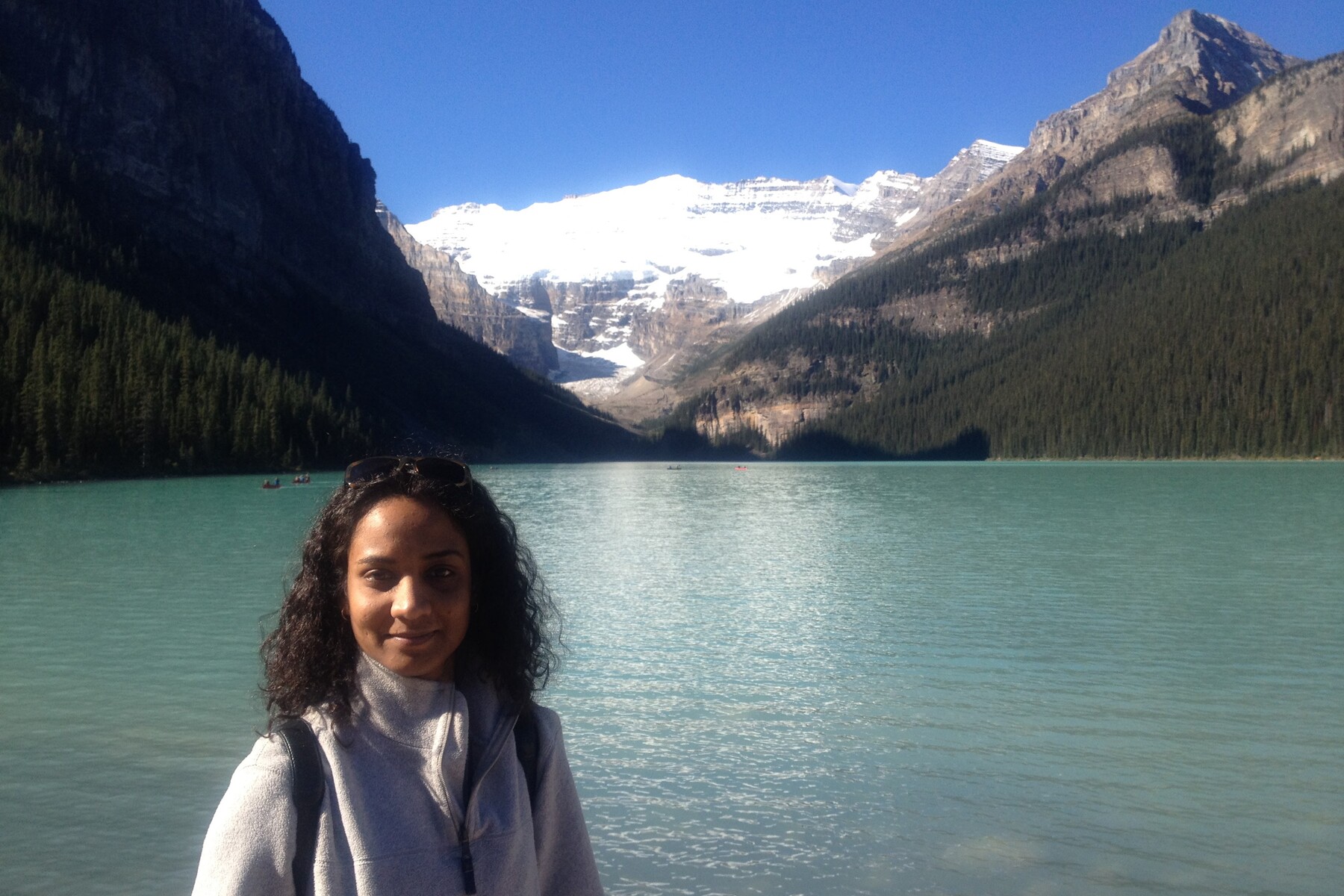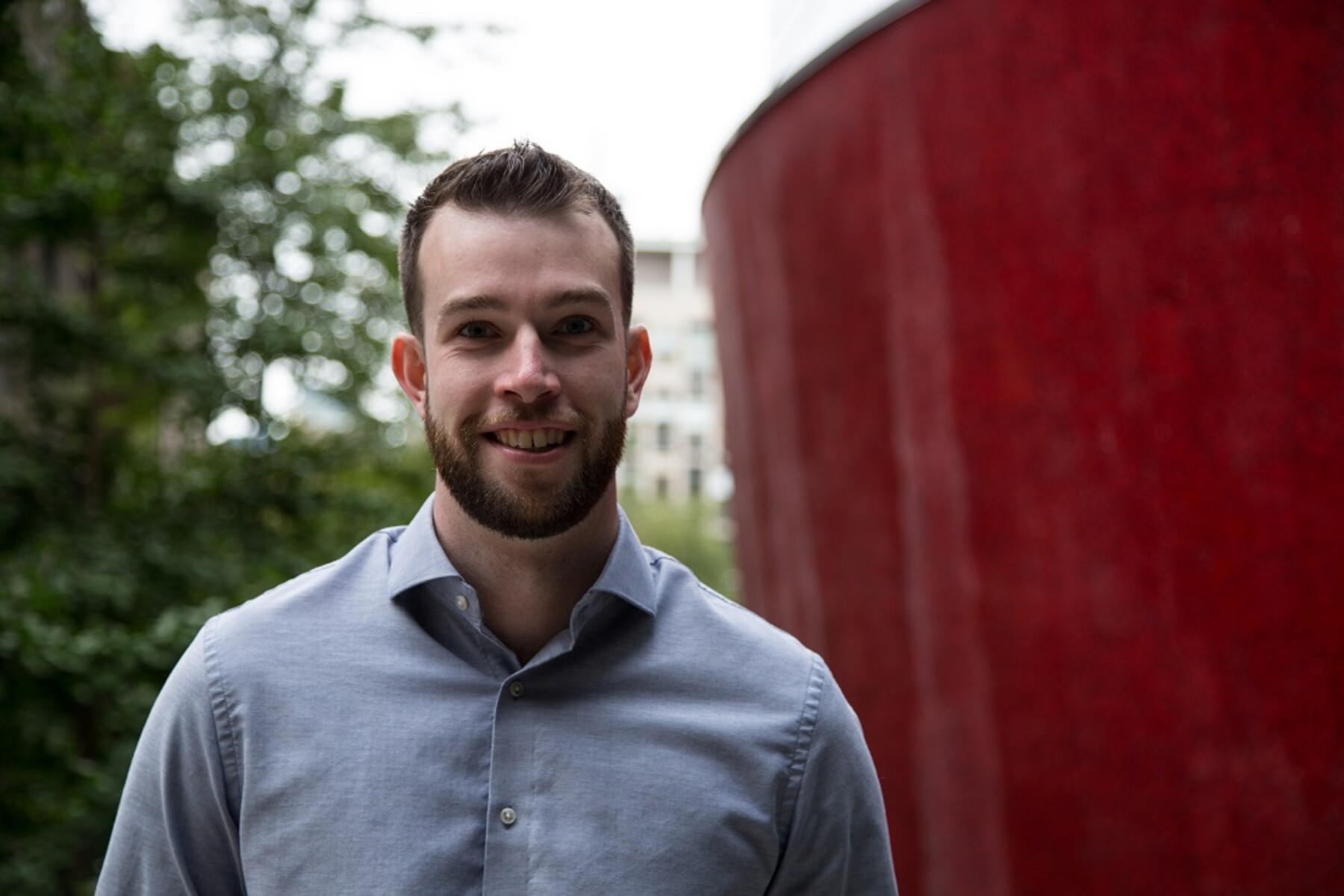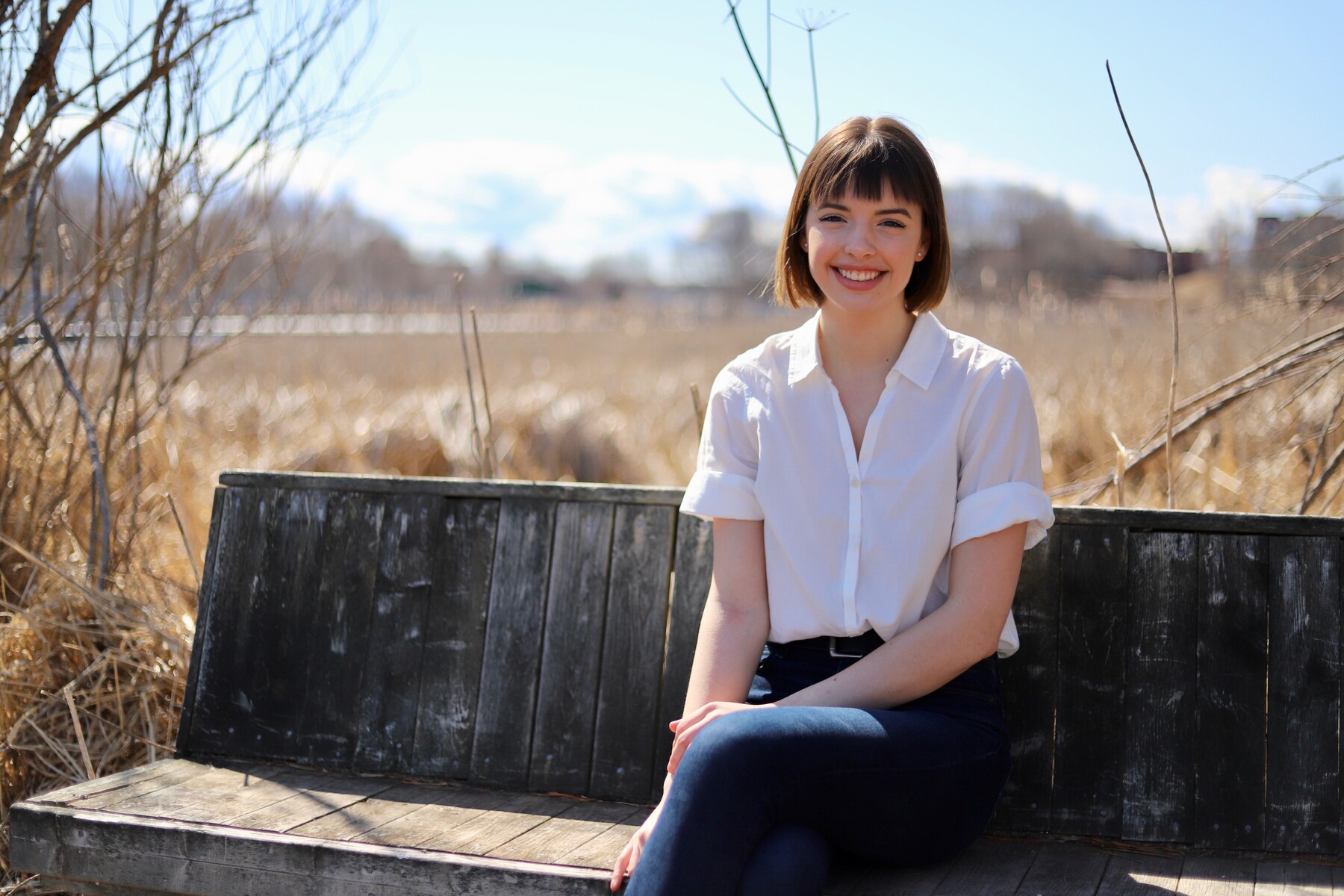Celebrating RSI's Newest Graduates

In celebration of #UofTGrad21, in what has been a remarkable year to say the least, we interviewed 3 of our newest graduates and asked them to share their experience at RSI, their insights and how it has shaped their future endeavors.
Naaz Desai

What does your research focus on and what sparked your interest in this field of study?My research in a very broad sense looks at using technology to improve outcomes following acquired neurological conditions like stroke and spinal cord injury and conditions related to aging. More specifically I am interested in exploring the use of non-invasive peripheral and central nervous system stimulation for improving functional outcomes like reaching, grasping, balance and walking.
My interest in this space was sparked by the fact that although we have achieved a lot in the past 2-3 decades, we still have a long way to go in helping individuals living with devastating injuries like SCI or stroke realize their full functional potential and thereby help improve their quality of life and ability to reintegrate into the community.
Part of this venture is also inspired by the incredible research that was being conducted in my lab.
What have been some of the greatest highlights of your time at RSI?
I would like to start of by saying that RSI is a wonderful place to be. Beyond the fact that there are highly accomplished and experienced researchers at this institute, the whole atmosphere is very welcoming and inspires one to learn. Some of the greatest highlights for me have been both in and outside the classroom. I have found teachers who have gone above and beyond to help me achieve my fullest potential. I have seen how beautifully different research topics are discussed and debated in a healthy environment where one can voice their opinions freely. Outside of the classroom student bodies have done a fantastic job at providing an inclusive social community where new friends are made over food and drinks!
Did you have any mentors that helped you get to this point?
I am very blessed to have some extra ordinary people be my wings that helped me soar! The Professors at RSI, the Scientists at TRI-UHN, the colleagues in my lab and many others behind the scenes own my success as much as I do! Thank you all, you have provided the grounding every time I felt I lost balance in this journey!
Specifically, though I would like to give a shout out to my supervisor Dr. Milos R. Popovic. Throughout the course of my PhD, he has been a mentor, a friend, a colleague, lending a listening ear, providing the ever so helpful guidance, perhaps with a side of humor to keep me going when all seemed to fail. To him I say THANK YOU!
What’s coming up next for you? What are you most looking forward to as you embark on the next chapter in your career?
Currently, I am a Post doctoral fellow at Krembil Research Institute, and I am delighted to be working with Dr. Robert Chen who is an expert in the field of neuromodulation. My hope is to evolve into a researcher who can make a difference!
What advice would you give to new and incoming students?
I would say embrace and enjoy the journey! Like the saying goes its about the journey more than it is about the destination.
Tyler Saumur

What does your research focus on and what sparked your interest in this field of study?
My PhD research focused on understanding how muscle function impacts our ability to regain stability after a loss of balance and how this relationship is impacted after a stroke. I have always seen our muscles as a "low hanging fruit" to research and apply different training protocols to. My interest in how the brain and muscles work together work together to optimize movement got me involved in this research with a particular focus on recovering balance and how stroke can affect not only balance, but muscles and their strength as well.
What have been some of the greatest highlights of your time at RSI?
I have been fortunate enough to be at RSI for 6 years and have formed so many great memories over the years. Starting the Student and Alumni Networking Event has been one of the highlights that I hope students can benefit from for years to come. My involvement in the Rehabilitation Sciences Graduate Students' Union over the years also allowed me to create great relationships with the fantastic staff and incoming cohorts of students of the years.
Did you have any mentors that helped you get to this point?
I have received so much great advice from mentors over the years. Drs. Stephen Perry and Karl Zabjek have been there for me since before I started my MSc and were continuously involved and supportive until I finished my PhD. Dr. George Mochizuki has similarly given me fantastic school and life advice since being my MSc supervisor. And I could not have completed my PhD without the amazing support from Drs. Sunita Mathur and Avril Mansfield who have constantly pushed me and been there for me to advance as a researcher. Truly thankful to all of these individuals and the countless others who have supported me over the years.
What’s coming up next for you? What are you most looking forward to as you embark on the next chapter in your career?
I'm currently working as a Medical Writer II at Everest Clinical Research. As I continue to advance with my career, I look forward to applying the amazing skills that I developed at RSI and take on additional leadership and mentorship opportunities to support colleagues.
What advice would you give to new and incoming students?
There is so much advice that I would love to share with all new students (see https://tylersaumur.wixsite.com/website/portfolio for some pieces I've previously written). But overall, I would suggest to say "yes" to whatever opportunities that present themselves as you never know what may come of them. That also comes with the caveat of knowing when to say "no", which can sometimes be more difficult. Lean on your fellow students when possible, make time for yourself, and embrace the experience!
Danielle DuPlessis

What does your research focus on and what sparked your interest in this field of study?
My Master’s research project was focused on developing a novel return-to-play assessment called R2Play for young athletes following concussion. Our team at Holland Bloorview Kids Rehabilitation Hospital aimed to build an assessment that would allow athletes to integrate skills across multiple domains, with the goal of more accurately simulating the demands of a real-life sports environment. To translate the R2Play assessment from an idea into a testable prototype, I transitioned from writing a scoping review, to interviewing stakeholders, to designing R2Play, to testing our interface, and finally to pilot testing our assessment. It is important to mention that this was truly a team project: my co-investigator, Emily Lam, had an equal role in bringing R2Play to life! From September of 2019 to now, in spite of many hurdles, we are really proud of what we’ve accomplished.
This work built on my interests in cognition and rehabilitation. I hold a B.Sc in Cognitive Science from Mount Allison University, where I began studying sports-related concussion. While I enjoyed this work, I was motivated to find more practical applications for research. It became important for me to see how research could translate to impact people outside of the lab space, especially in clinical populations. Outside of academics, I also play wheelchair basketball for the Canadian Women’s National Team. In this capacity, I have experienced and witnessed the importance of sport and rehabilitation as a tool for fostering well-being. Prior to beginning at RSI, I was a gold medalist at the 2019 Pan Am Games in Lima, Peru, and in 2021 I became a Paralympian at the Tokyo 2020 Games.
With this, a Master’s at RSI in Cognitive Rehabilitation seemed like a perfect fit. In my supervisors, Dr. Shannon Scratch and Dr. Elaine Biddiss, I found two people who were excited about their work, focused on its practical applications, and optimistic about accommodating my wheelchair basketball schedule. On top of that, I got to leverage my knowledge of sports, rehabilitation, and concussion while building R2Play. It was a great fit!
What have been some of the greatest highlights of your time at RSI?
Some of my favorite memories are of time spent with my classmates and colleagues. Early in our first year, it was wonderful to grab lunch after class on University Ave or to commute to Holland Bloorview together. A lot of our in-person time was cut short by COVID-19, but I am already looking forward to seeing them again!
Another highlight for me was conducting my research out of the Bloorview Research Institute (BRI). It was a unique experience to be surrounded by so many talented researchers and clinicians who care deeply about improving the lives of children. Working with Dr. Biddiss’ PEARL lab and Dr. Scratch’s NOvEL lab was an amazing opportunity to build my skills. I had so many lab-mates step up to help improve my project and keep me moving forward. The openness and collaboration that I experienced at BRI is something I will carry forward to future labs.
Coming back from the Tokyo Paralympics in September to hear that my classmates and lab-mates had watched me play and were cheering me on at home still brings a smile to my face. I found a wonderful community at RSI and BRI, and I am so thankful for them!
Did you have any mentors that helped you get to this point?
My supervisors, Shannon and Elaine, deserve a huge thank you for their continued support. It takes a special pair of supervisors to accommodate the level of multi-tasking that it took to execute this degree and play for team Canada. They struck a great balance between pushing me to improve and supporting me when I needed it.
During the Pandemic, we faced a lot of uncertainty. Both Shannon and Elaine were at home parenting full-time, but never dropped the ball on moving my Master’s project forward. They were also ready to help me pivot when the Tokyo Paralympics got rescheduled to August 2021 (right in the middle of defense time!) and with a lot of effort, we made it work. Shannon and Elaine—I am so fortunate to have had you on my side!
What’s coming up next for you? What are you most looking forward to as you embark on the next chapter in your career?
I have lots to look forward to in the next little while! I have just begun training as a Clinical Developmental Neuropsychologist in the MA/ PhD program at York University. I love that I’m able to rely on the strong research background that I built up at RSI, while challenging myself to learn new clinical skills and take a more hands-on role.
Outside of school, I am also excited to play with team Canada at the upcoming Wheelchair Basketball World Championships in Dubai in November 2022.
What advice would you give to new and incoming students?
I took on a very ambitious project, so the key for me was to ask for support when I needed it. Developing an understanding that your supervisors are there to support you and foster your learning makes a huge difference. Your drafts don’t have to be perfect, and your mock presentations don’t have to be polished. Give the people around you the opportunity to help. They are going to push you to be excellent, so let them give you a boost when you need it!
---
U of T's Fall Convocation 2021 (Virtual) Ceremony kicks off on November 18, 2021 @ noon. For more information, please visit the Office of Convocation website. Many congratulations to all of our RSI graduates!
